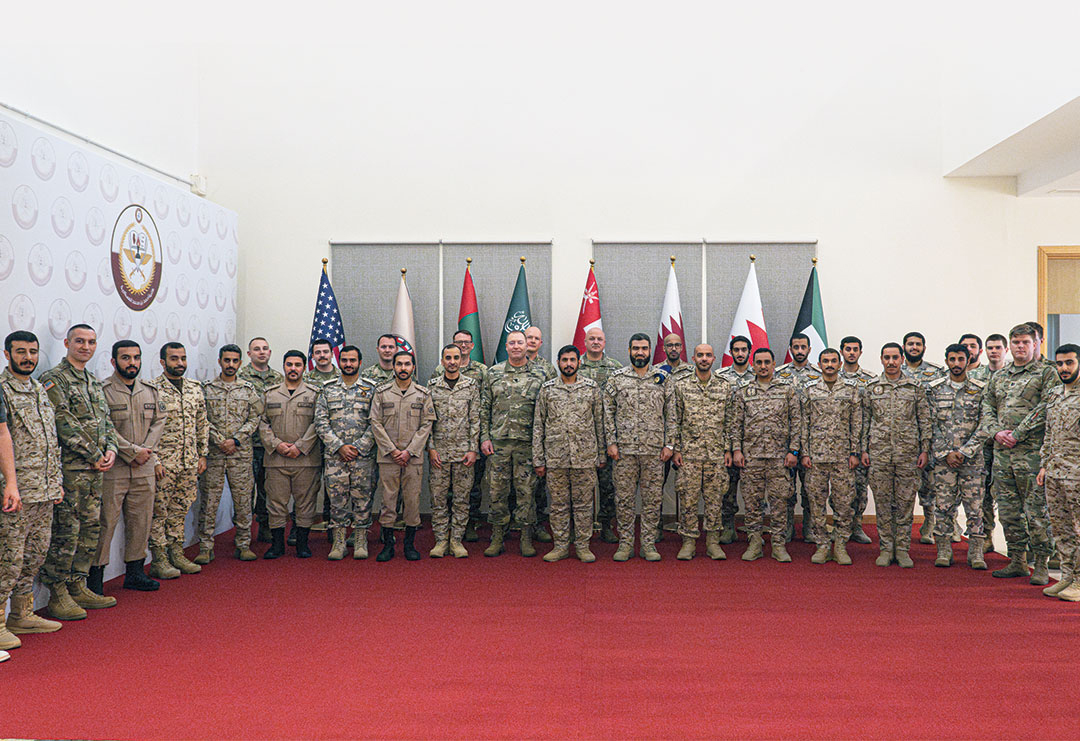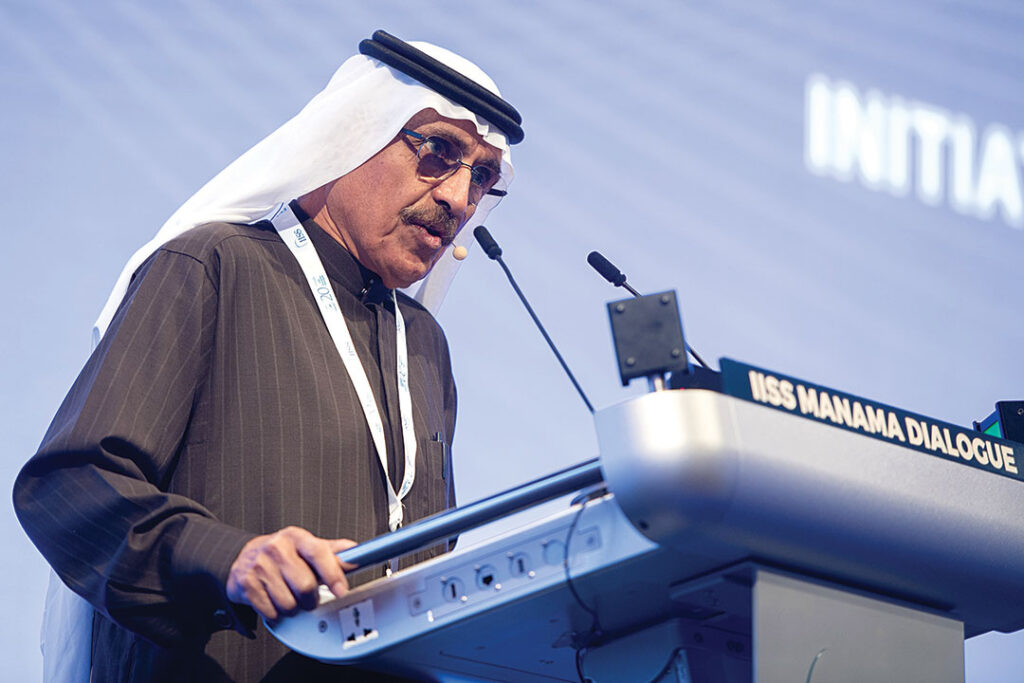The Gulf Cooperation Council, (GCC) issued its vision for regional security in 2024. It was the first time in its 44-year history that the organization has publicly articulated such a vision.
Previously, a similar vision guided its policies, but it was never published. This vision, I must say, also is reviewed almost every three months, drawing on the experiences of all the relevant GCC services, such as the military, security and foreign-ministry establishments. And more recently, the economic and environmental services as well have been contributing to the update of this vision.
It relies on a larger framework for regional security, which is not yet published, and a much larger matrix of current, potential and emerging threats and how the GCC proposes to deal with them. That matrix also is not published but it is updated almost every three months.
The published vision provides a guide to how the GCC states are adopting a new role to leverage their economic and strategic strengths for regional security, stability and prosperity. This includes how to deal with conflict in Gaza, a new approach to Iran that was launched this year, and a growing number of regional conflicts.
The vision also provides guidance on how the GCC deals with a number of cross-cutting thematic threats, such as terrorism, cyberattacks, energy security, food and water security, and climate change.
The first grounding principle of our vision is respect for international law, including the United Nations Charter and international humanitarian law. This means no double standards, but instead strict compliance with international law. That has been a sticking point in several of the conflicts in the region, including the Gaza conflict and our differences with Iran.
Second, our vision promotes multilateralism and regionalism. Obviously, from a regional organization’s point of view, we believe firmly in multilateralism, but also in regionalism.
Third, we respect state sovereignty, political independence, international borders and territorial integrity. That applies not just to Ukraine but to this region as well. And we also rely on the tradition in this region of good neighborliness and noninterference in your neighbor’s internal affairs. We also believe in resolving disputes through peaceful means and refraining from the use of force or threats.

Finally, we are ready to engage and mediate disputes. This is something new for the GCC as an organization. Peacemaking and peacebuilding have also become parts of the GCC tool kit. We apply a positive sum, not a zero sum, and try to bring everyone on board that philosophy so that we’re not letting one individual party take the whole pie, but actually making it bigger and sharing it with everybody.
The next issue is security of the GCC, meaning internal security of participating countries, regional security and international security, and how the GCC sees itself as contributing to all of these.
When it comes to regional security, we express readiness to undertake ambitious and innovative steps through regional partnerships and toward sustainable peace. And here we have offered two grand bargains and a number of other resolutions for regional conflict.
The first grand bargain is the Arab Peace Initiative for a two-state solution and integrating Israel into the region as a partner.
The second grand bargain urges Iran to live up to its commitments under international law and respect the principles I mentioned earlier. If Iran does so, the GCC is ready to go the extra step of integrating Iran and extending economic, political and strategic cooperation to the country.
The GCC is committed to shared prosperity, meaning that we believe we can contribute to our neighbors’ welfare and prosperity. What we require is a commitment to the grounding principles mentioned earlier.
We also believe that, with our neighbors, we can transform today’s challenges into opportunities for development and prosperity. No matter how great the challenges, whether in Gaza, Lebanon, Syria, Yemen or Sudan, they can be resolved through adherence to the GCC’s vision.
JOINT GCC EFFORTS TO ENHANCE REGIONAL SECURITY
- Build upon the GCC states’ efforts to mediate differences through negotiations, diplomacy and dialogue.
- Intensify efforts to play an effective leadership role to spare the region the repercussions of wars, tackle regional crises, and support mediation efforts; call for the implementation of relevant United Nations Security Council resolutions; safeguard the sovereignty, unity, and security of states in the region; and counter external interference.
- Activate the Arab Peace Initiative and support international efforts to reach a just resolution of the Palestinian cause.
- Support international and regional efforts to preserve the nonproliferation regime and make the Middle East, including the Gulf region, free of weapons of mass destruction.
- Support states’ right to use nuclear energy for peaceful purposes within the framework of international agreements and adherence to nuclear safety standards.
- Maintain maritime and waterways’ security, and deter activities threatening maritime navigation lanes, international trade and energy supplies, and combat smuggling. This can happen by strengthening internal capabilities, deepening regional and international partnerships, and supporting cooperation and coordination mechanisms at regional and international levels to enhance shared strategic interests.
- Enhance efforts to combat terrorism and extremism of all forms and manifestations, urge other regional and international parties to adopt a comprehensive approach built on peaceful coexistence and mutual respect between countries, and combat all forms of terrorism and extremism, which should not be associated with any particular faith, people, or ethnic group.
- Work to dry up sources of terrorism and its finances, while actively engaging with other regional and international partners to improve legal frameworks and practices to combat terrorism financing and money-laundering.
- Demand the criminalization of groups carrying out terrorist acts, irrespective of their political or sectarian affiliations, or ties to state institutions, and refrain from supporting, financing and arming terrorist militias and sectarian groups.
- Raise cybersecurity levels and counter cybercrime.
- Enhance international partnerships to preserve regional and international security and stability, addressing chronic crises, reinforcing legal regional and international mechanisms, and establishing a platform for direct negotiations to bridge differences between parties to conflicts.
- Ensure the stability of global energy markets to serve the interests of producers and consumers, sparing the world from the harms of market fluctuations and disruptions to global supply chain.
- Intensify efforts to find effective solutions to climate change challenges through a realistic, responsible and balanced approach.
- Implement the circular carbon economy approach, which enhances the development of renewable energy resources and optimized use of hydrocarbons through clean technologies to manage emissions.
- Confront future challenges to water and food security.

